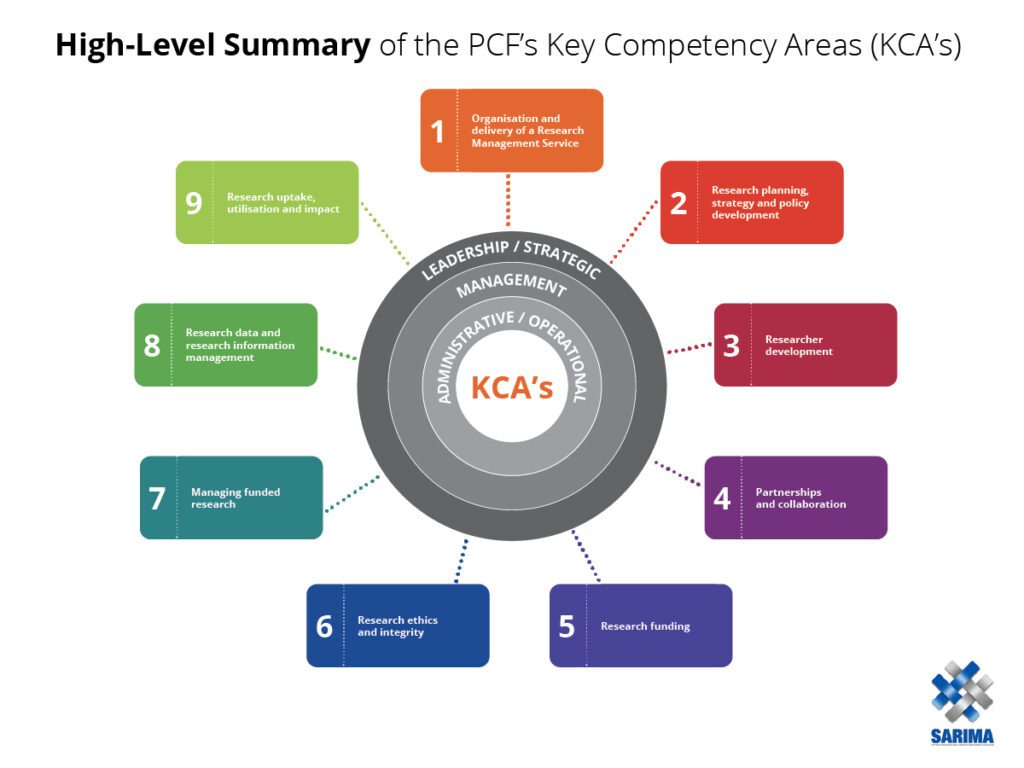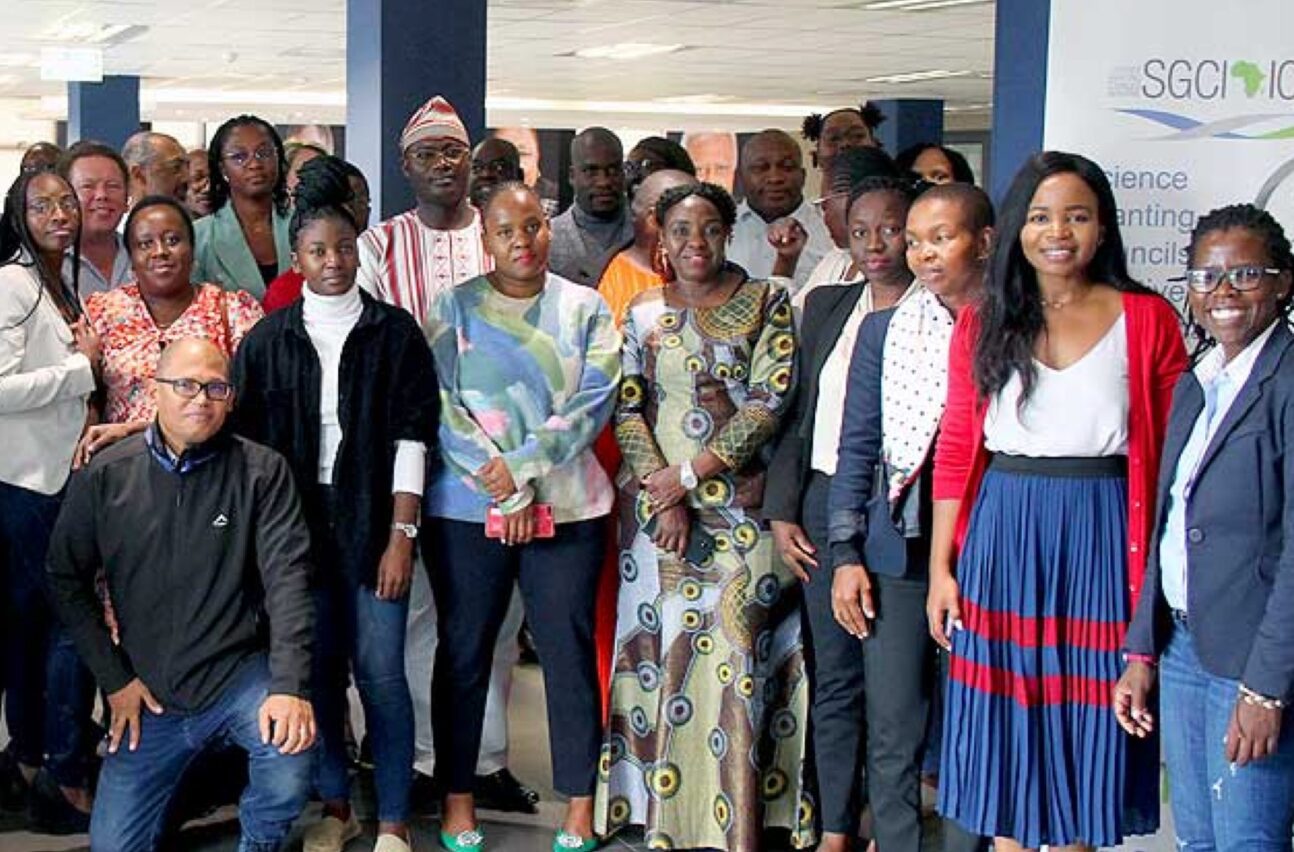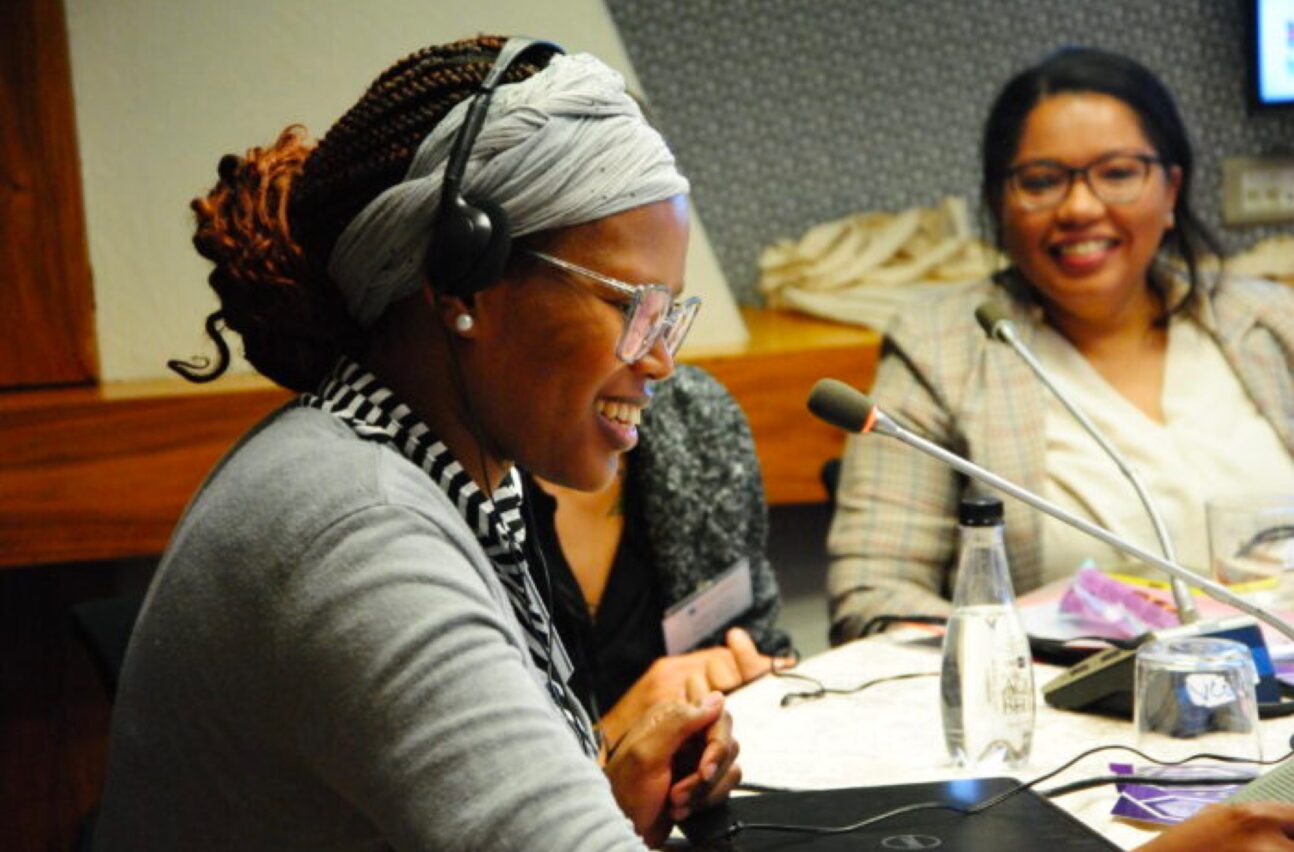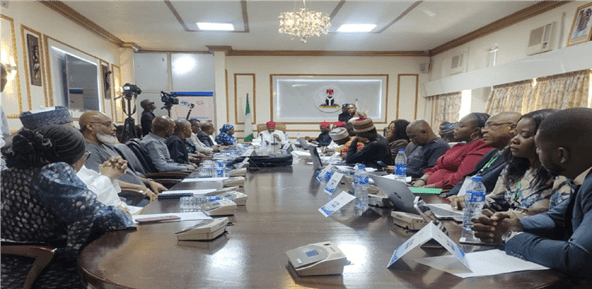Professional competencies are crucial for effective research management and administration. These specialised skills ensure research professionals can navigate complex processes, secure funding, and support innovation. To define and structure these…
Professional competencies are crucial for effective research management and administration. These specialised skills ensure research professionals can navigate complex processes, secure funding, and support innovation. To define and structure these competencies, a comprehensive framework has been developed. In 2024, the Southern African Research and Innovation Management Association (SARIMA) published the latest edition of the Professional Competency Framework (PCF). The PCF outlines the core skills required for research managers and administrators. With support from the Science Granting Councils Initiative (SGCI), the updated PCF was translated into French and Portuguese
The PCF was created through extensive consultation. The original document was developed ten years ago and has since undergone updates. Regular revisions ensure it remains relevant to the evolving needs of research management. This dynamic field requires a competency framework that reflects current industry demands. By incorporating user feedback, SARIMA ensures the PCF remains an accurate and valuable resource.
Key competencies in research management

A well-defined competency framework helps establish clear expectations for skills and behaviours. The PCF identifies nine core competency areas, including researcher development and research funding.
Consider, for example, research management services. The PCF details the necessary competencies in this area of work. It focusses on organizing and structuring research management. The document defines the specific proficiencies and skills for this role. It categorises these skills into three levels: administration, management, and leadership.
Cross-cutting, transferable skills
In addition, the PCF identifies transferable competencies across three levels. Research management and administration are people-oriented professions. Developing and maintaining relationships is a key aspect of the job. The cross-cutting competencies reflect this.
Take, for example, communication, negotiation, and conflict resolution. Research is highly collaborative. This makes these skills all the more important. The PCF outlines staff’s need to be able to talk and listen to others. The ability to convey information and ideas is essential. Exploring alternative points of view helps to build solutions. These competencies are fundamental in managing relationships and ensuring smooth research operations.
How to use the professional competency framework
The PCF serves multiple purposes beyond defining competencies. It supports organisational ethics, training, and career development. Human resources teams can use the framework to design training programmes, create job descriptions, and set performance standards.
Additionally, the PCF is a valuable tool for career progression. Individuals can use it to assess their competencies and identify areas for improvement. Institutions can apply the framework for succession planning and to address workforce gaps.
For professionals applying through the International Professional Recognition Council (IPRC), the PCF is essential. Applicants must complete a competency self-assessment based on the framework.
The PCF helps define key competencies, supports skills development, and ensures consistency across organisations. It also simplifies recruitment by providing clear competency guidelines, helping institutions build stronger teams.
The PCF is a valuable resource for research institutions, HR teams, and professionals seeking career growth.
Download your copy today to enhance your organisation’s research management capacity.
Themes
The SGCI aims to strengthen the capacities of these SGCs to support research and evidence-based policies that will contribute to economic and social development.







